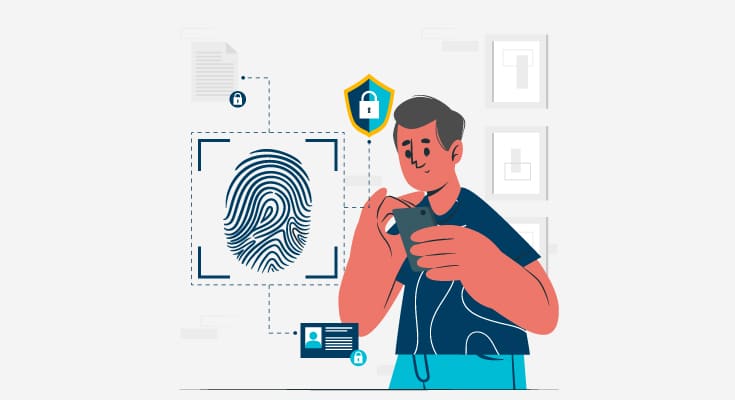As many employers are realising, it’s never been easier for job candidates to pretend to be somebody they are not.
The combination of globalisation and remote hiring has widened talent pools and sped up recruitment processes, but also created more opportunities for candidates to get away with hiring fraud, from falsifying references and qualifications to making up a completely new identity.
Especially in situations where organisations are hiring and onboarding large numbers of employees quickly, risk mitigation is a key concern.
Digital identity checks are being touted as a mitigation solution to rising recruitment fraud, providing employers with instant verification of a candidate’s identity and employment record.
Lee Hughes, Vice President of Sales, EMEA, at leading background screening organisation First Advantage, speaks to Dawn Gibson-Fawcett about UK adoption and business use cases.
Dawn Gibson-Fawcett: Has there been an increase in the number of UK employers requiring job applicants to undergo digital identity checks?
Lee Hughes: Yes. There is a trend towards digital background screening during recruitment; it is definitely a hot topic for employers due to the rise in identity fraud triggered by the move towards more remote hiring and working.
‘Moonlighting’ employee fraud is becoming more common, which involves a candidate assuming someone else’s identity or creating a new identity, or even using their own identity multiple times, so they can work several jobs simultaneously.
We’re especially seeing greater demand for digital identity checks in situations which require high volume, high velocity recruitment. For example, we work with a large retailer that employs about 45,000 people a year and receives around 450,000 applications for those roles. They need to be able to quickly establish if candidates are who they say they are and have a right to work in the UK, so they may eliminate spurious applications early in the recruitment process.
Globalisation adds another element of difficulty – even if you have a highly experienced hiring manager, are they trained to spot a counterfeit German or Spanish passport?
Large organisations are starting to embed digital trust into their processes as they consider cost savings as well as efficient use of time and human resources.
Digital verification is about protecting your brand reputation. There have been several cases in the past few years where big organisations have been subjected to damaging media coverage because they have hired somebody who isn’t who they claim to be or has created a false identity and background.
DGF: What type of companies are leading the trend?
LH: It’s more about the type of recruitment than the sector, but companies in retail, transport and logistics, hospitality and leisure tend to hire at high volume and according to seasonality, so they need an efficient way to quickly screen a large number of applicants at once.
And, of course, the financial services sector is a prime target for people committing identity fraud in order to get access to sensitive data. Some of our customer base is in the financial services sector and they are increasingly adopting digital identity screening for employment purposes.
While financial services organisations operate within a highly regulated environment which requires stringent checks on employees and customers, there’s a difference between general employee screening and upstream verification of candidate identity in the very early part of the recruitment cycle. Employers want to know: how early can you determine that an applicant has the right credentials, the right attributes and the right employment history to be onboarded?
DGF: When employers need to get new hires onboard as quickly as possible, won’t requiring every job applicant go through digital ID checks add an additional layer of complexity?
LH: Good question. Well, if you think about the traditional way somebody proves their identity, it involves turning up at the employer’s location with your documentation, handing it to a staff member who takes a photocopy and compares you with your photo on your passport or drivers’ licence.
But, in a digital process, the candidate can verify their identity from home using their phone – no need to drive anywhere or see anyone.
And most of us are now used to having the convenience of that digital experience with a range of services, whether we’re shopping online or opening a bank account, so employers who make the initial stage of their recruitment process quicker and easier for applicants are making themselves more attractive in the market. Providing a better applicant experience means you’re less likely to lose good applicants due to poor process.
If anything, you are reducing complexity. You may still want to see an applicant in person, but this will be further along the recruitment process when you have whittled down the number of applicants to a smaller pool of people.
DGF: How is AI technology such as ChatGPT being used for employment fraud?
LH: AI has made fraud so much easier – someone doesn’t need to be highly skilled to create false documentation and a bogus resume. All they need is a laptop and internet access.
You can feed ChatGPT a job description and it can often produce a more convincing CV than most people can write for themselves. You can also find identity documents quite easily online.
People are even using bots during interviews so that they can leverage AI to answer difficult questions. This happened to me – I interviewed a candidate on Teams and suddenly up popped this AI bot to join the conversation. I asked the person why they had invited a bot to our meeting; they said it was taking notes. I asked them to turn it off because it was possible that they could have ChatGPT open on another screen and be feeding in transcribed information for ready answers.
The chief concern of employers is, once these people are through the door, what will happen then? There needs to be preventative steps to support hiring managers during the recruitment process.
DGF: How do you see the adoption of digital identity hiring checks in the UK in the next five years?
LH: I think it will become almost mandatory, and one of the reasons I say that is governments across Europe are introducing digital identity wallets designed to be applicable for multiple use cases. So, instead of carrying around various types of documentation such as a drivers’ licence or passport, you have a digital identity which can be used in the future for everything from filing a tax return to applying for a job, getting on a plane to opening a bank account.
We’ve already seen the evolution of online payments – you don’t need to get out your bank card any more to pay for an increasing number of items – and this is the next step.
DGF: Do you think the new UK government will be receptive to wider use of digital ID screening?
LH: It’s probably too early to tell but it’s definitely already in the conversation. It will be about the government assessing digital identity as a priority, the cost of the investment, and what has already been done. It’s a matter of when, not if.







